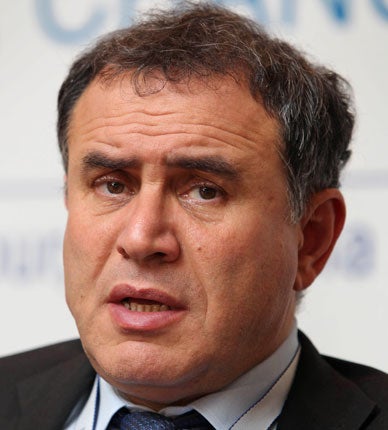Irish rescue plan fails to stem fears about Spain and Portugal

Markets tumbled yesterday as investors looked beyond the Irish bailout, focusing instead on fears that the European debt crisis is spreading to Spain and Portugal.
The euro slumped to two-month lows against sterling and the US dollar, while the cost of insuring Spanish and Portuguese debt against default ballooned to record highs as the EU's €85bn (£72bn) Irish rescue package failed to soothe nerves about economies on the Continent's southern periphery.
All the while, yields on Spanish, Portuguese and Italian government debt continued to rise, making it more expensive for those countries to borrow money. The yield – in effect, the interest rate – on 10-year Spanish debt rose to 5.330 per cent while Portugal's added 9 basis points in the afternoon.
In Italy, investors were unimpressed by Rome's attempt to sell €5.5bn in fixed rate bonds, with the risk premium they demand to hold Italian debt rather than German bonds rising to its highest level since the birth of the euro. Belgian debt faced a similar fate, with the premium rising to 110 basis points, its highest level since early last year.
Investor jitters spread from the bond to the stock markets. In London, the blue chip FTSE 100 index closed down 2.1 per cent at 5,550.9, while the Dow Jones in New York was down more than 1 per cent in early trading.
Nouriel Roubini, the US economist nicknamed "Dr Doom" for warning of an impending credit crisis before 2007, suggested Portugal could be next in line for a bailout. "It is becoming increasingly likely," he said in an interview with the Portuguese press.
"Like it or not, Portugal is reaching the critical point. Perhaps it could be a good idea to ask for a bailout in a preventive fashion." He also warned that Spain "is too big to fail and too big to save". "As such, if things turn out of control as seems possible with Portugal, [Spain] should do everything possible to improve its situation," he said.
Analysts also expressed concern about the details of the Irish rescue. European Union finance ministers approved an €85bn to help Dublin cover its debts on Sunday night. But the fine print revealed that Ireland was putting €17.5bn towards its own rescue by tapping its National Pension Reserve Fund.
The weekend also saw the approval of the outlines of a Franco-German proposal to stem future crises. The long-term European Stability Mechanism will pave the way for a permanent rescue facility which will involve private creditors in future bailouts.
Subscribe to Independent Premium to bookmark this article
Want to bookmark your favourite articles and stories to read or reference later? Start your Independent Premium subscription today.

Join our commenting forum
Join thought-provoking conversations, follow other Independent readers and see their replies